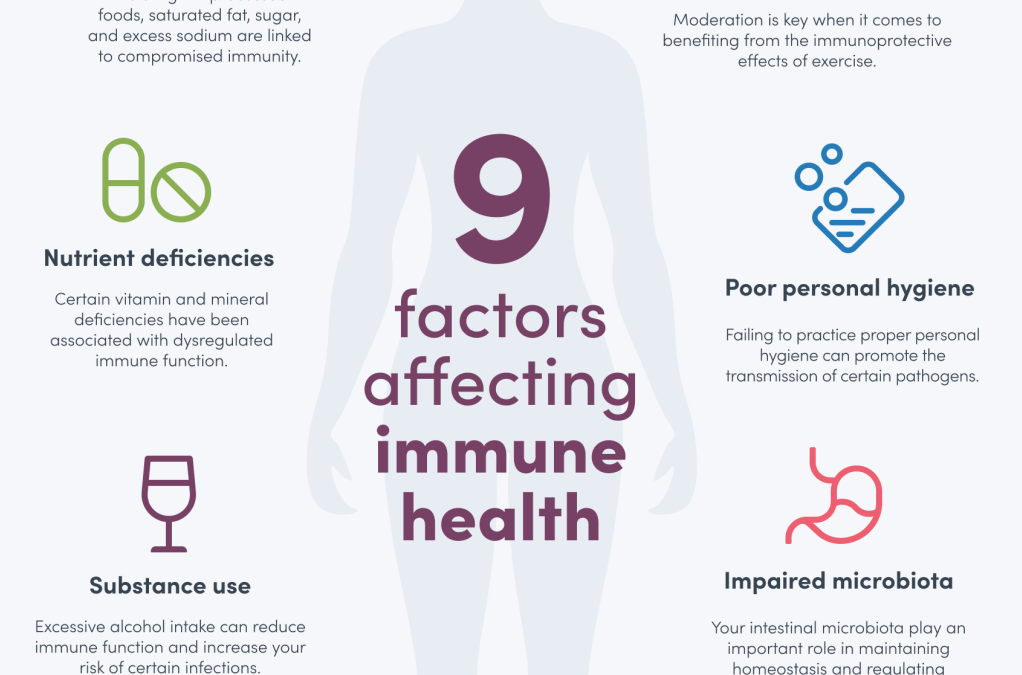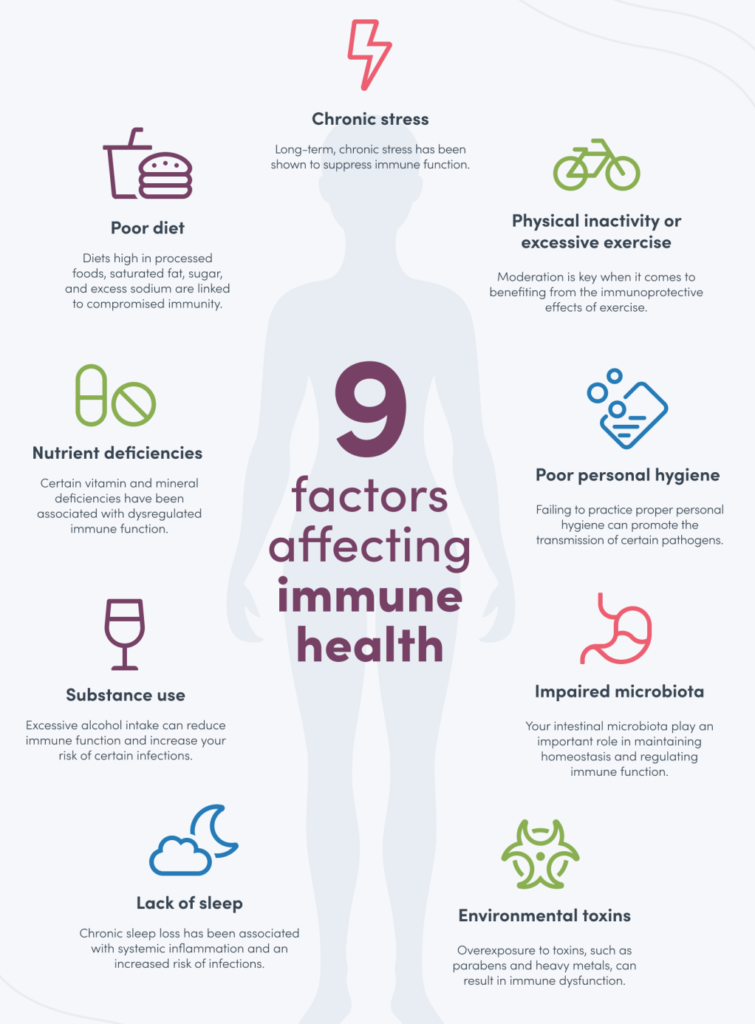What is the immune system?
The immune system is the body’s primary defense mechanism against potentially harmful invaders, such as pathogens, antigens, and immunogens. The immune system is made up of various cells, tissues, and substances, including the skin, red and white blood cells, microbiota, antibodies, and cytokines (cell-signaling molecules).
The immune system’s defenses are generally classified as two responses, namely the innate immune response and adaptive immune response. The innate immune response, your first line of defense, is classified as non-specific or generalized since the defensive actions do not differ between offenders. The adaptive immune response is the body’s acquired or learned response to specific pathogens or other compounds that it has previously encountered. How does the immune system get compromised?
Several factors may be associated with dysregulated immune function and increased susceptibility to disease, including:
● Antibiotic use
● Certain health conditions (e.g., allergic asthma, cardiovascular disease, certain cancers, diabetes)
● Certain nutrient deficiencies (e.g., vitamins A, B, C, D, and E, copper, iron, selenium, zinc)
● Chronic stress
● Excessive alcohol consumption
● Intense or excessive exercise
● Intestinal dysbiosis (imbalanced gut microbiota)
● Lack of sleep
● Physical inactivity
● Smoking
Top lifestyle recommendations for immune support Maintain a healthy diet. Research suggests that a poor nutritional state impairs immune function and increases susceptibility to disease, while getting sick may also worsen nutritional status. Consuming a balanced, whole-foods diet supports overall health and immune function.
Manage stress effectively. While short-term stress may stimulate both innate and adaptive immune responses, chronic stress has been shown to suppress immune function. Long-term or chronic stress may decrease immune cell count and increase inflammatory responses. Incorporate ways to manage your stress, such as counseling, mindfulness, and yoga. Exercise regularly. Research has shown that lifelong regular physical activity may have immunoprotective effects and may reduce the risk of certain cancers, such as breast cancer. On the other hand, strenuous exercise, such as competitive athletic training, may result in an impaired immune system and increase the risk of infections, such as upper respiratory infections.
For more information, refer to recommendations from the U.S. Department of Health and Human Services. Get adequate, good quality sleep. Chronic sleep loss has been associated with immunodeficiency, increased inflammatory markers, an impaired response to influenza vaccination, and increased susceptibility to the common cold. According to the Centers for Disease Control and Prevention (CDC), adults require seven or more hours of sleep per night.



